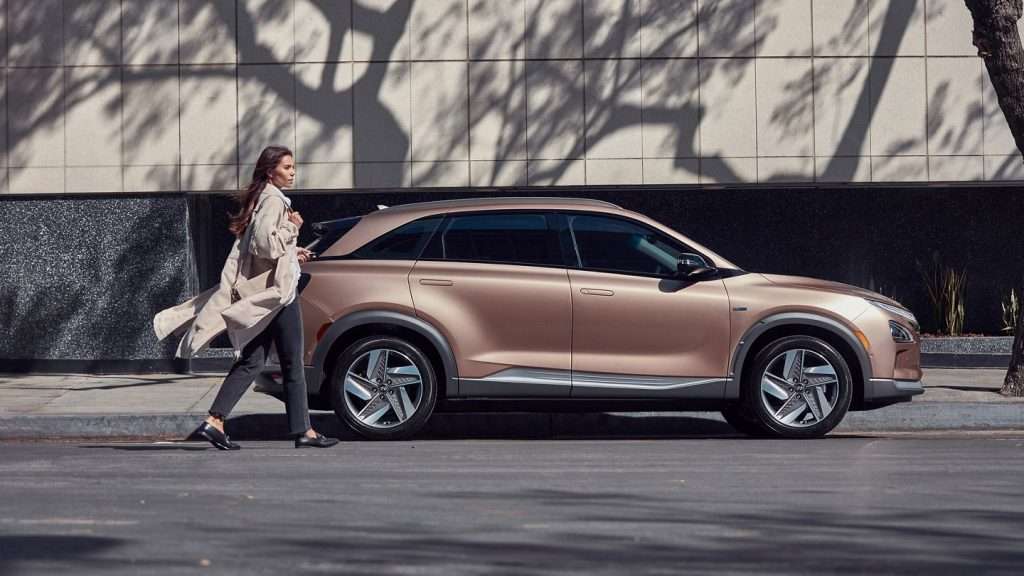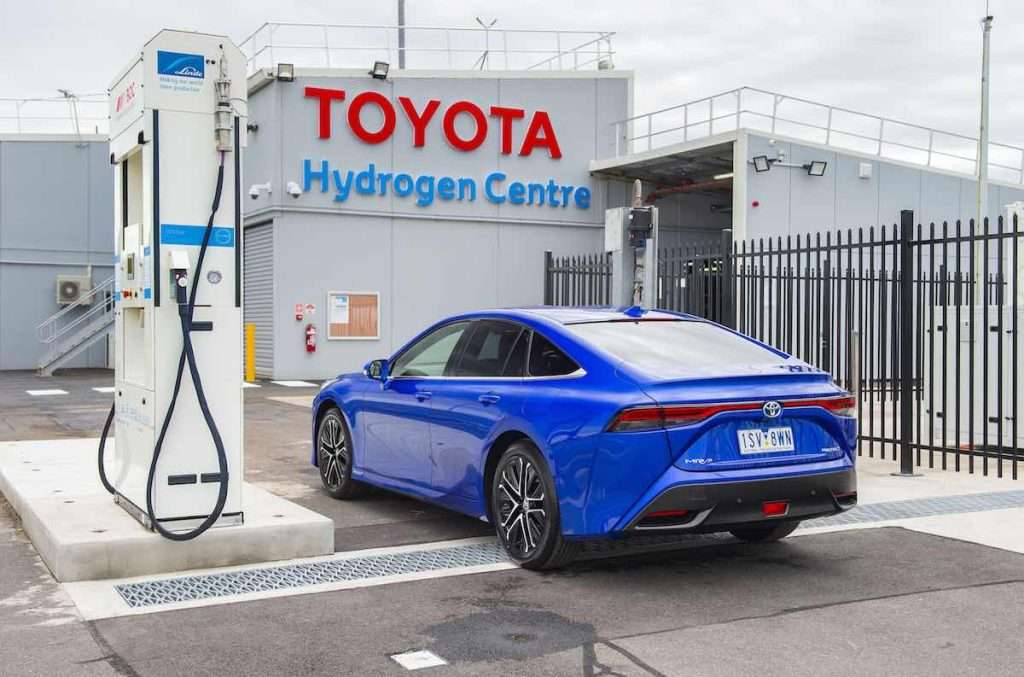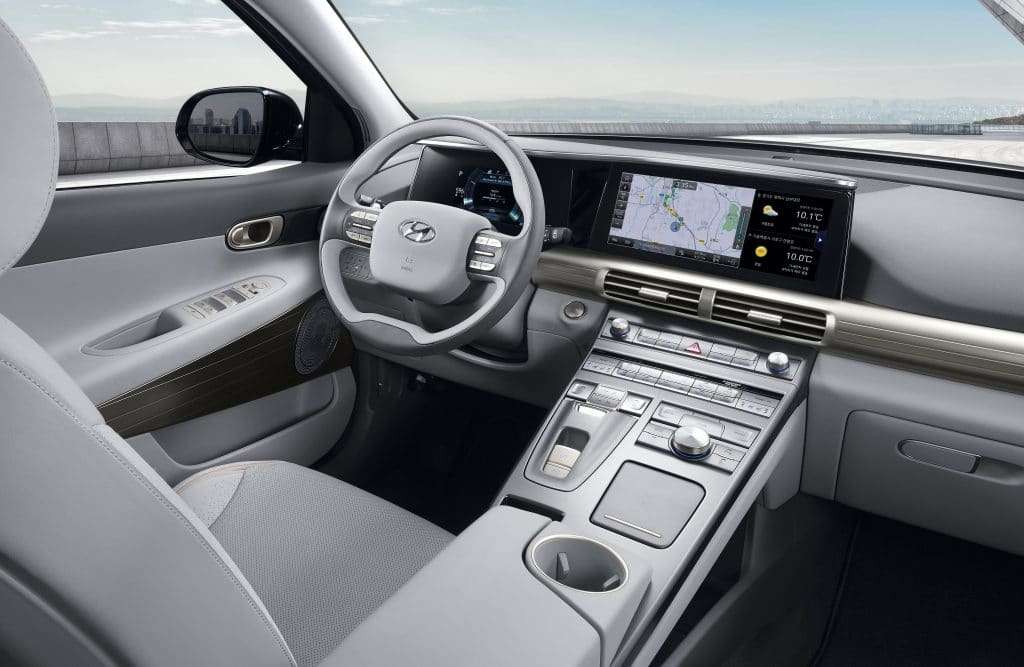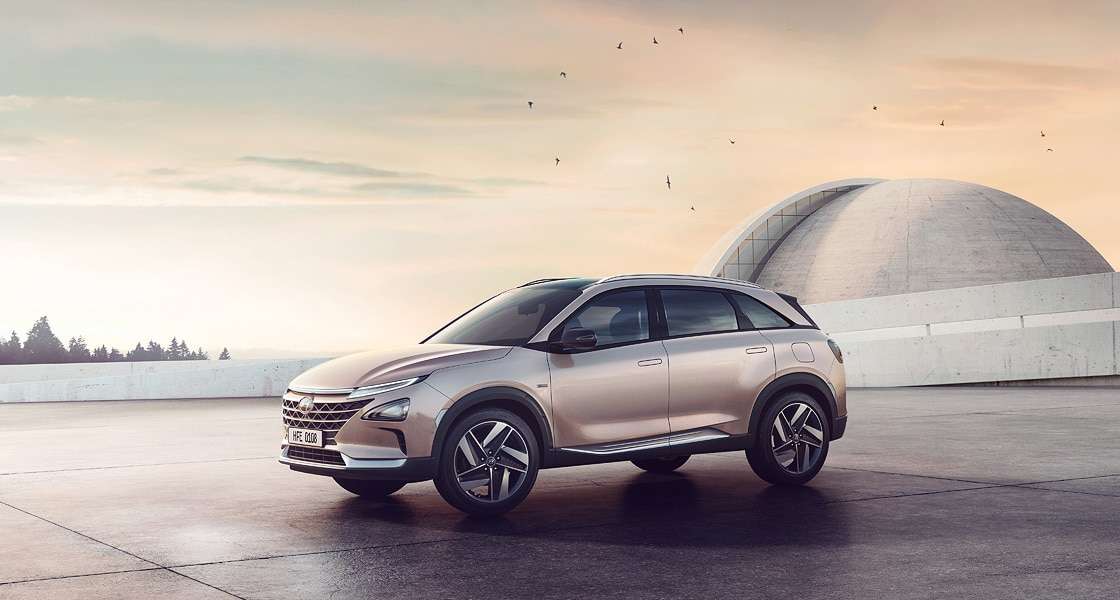Hydrogen fuel cell technology offers numerous benefits, according to proponents of the technology. So why hasn’t it made more of an impact when it comes to cars?
Hydrogen is the universe’s most abundant element, and when burned, the only emission it generates is water vapor. So given the scrutiny faced by the motoring industry amid climate breakdown fears, surely it would make sense to turn to hydrogen to power our vehicles. So why hasn’t that happened at scale yet?
While commercial hydrogen fuel cell electric vehicles (FCEVs) are available in the U.K. and U.S. among other nations, they have not caught on in the same way electric vehicles have. According to recent Hydrogen Fuel Cell Partnership data, 2022 saw a 19 percent decline in new hydrogen fuel cell car sales.
Despite the declining numbers, the cars certainly have sustainability appeal: Hyundai described the vehicles as ‘the ultimate eco-cars, offering long cruising ranges with a short refueling time and generating zero emissions’ in a press release announcing the launch of its second-generation hydrogen-powered Mirai in 2020 (the first hit the market in 2014). Honda recently became the first automaker to start U.S. production of hydrogen cars.

“Honda established our goal to realize carbon neutrality by 2050 and the complete electrification of our vehicle lineup by 2040 is critical to achieving it,” Gary Robinson, vice president of Auto Planning and Strategy for American Honda Motor Co., Inc., said in a statement. “As we accelerate our plan to produce Honda battery EVs in the United States, we also will begin low volume production of fuel cell electric vehicles there to further explore their great potential as part of a sustainable transportation future.”
Few FCEVs are currently offered to consumers: in the U.K., there is the Hyundai Nexo (which retails for £69,495 apiece, with only a handful reportedly sold), and the Toyota Mirai, with a £55,000+ price tag and around 200 sales. Other motoring manufacturers including BMW, Land Rover, and Vauxhall are reportedly planning to release their own hydrogen-powered cars within the next five years. When it comes to the States, the Hyundai Nexo ($60,000) and the Toyota Mirai ($50,000) are both available.
Few FCEVs seem to be operational in the U.S., with a lack of infrastructure cited as a reason by Autoweek, which says “almost all America’s fuel cell vehicles are in California.” This is because outside of California’s 51 Hydrogen Refuelling Stations (HRS), and Hawaii’s one, there is currently no hydrogen fueling network anywhere else in the States, though there are some in development in the North East.
Hydrogen infrastructure
Infrastructure issues are also a factor in the limited number of FCEVs on U.K. roads. As of last year, there are only 11 HRS currently in operation around the U.K., with the majority clustered in the South West, near London.
One of the most critical benefits of hydrogen fuel is energy security, due to hydrogen’s wide availability. Secondly, proponents of hydrogen FCEVs offer environmental improvement by decarbonising the transport sector, which can reduce emissions, limit the impact of potentially damaging climate change, and improve human health well into the future.

Explaining why hydrogen is so environmentally friendly, Oliver Zipse, head of BMW, says hydrogen is the “missing piece in the jigsaw when it comes to emission-free mobility.” The German automaker’s BMW iX5 Hydrogen fuel cell car is currently in testing with fuel cells from Toyota. “One technology on its own will not be enough to enable climate-neutral mobility worldwide,” Zipse said.
Even when hydrogen is produced from fossil fuels, it can significantly reduce the overall amount of greenhouse gases and pollutants produced in power generation plants. On top of energy security and environmental benefits, the third upside of developing a new hydrogen-based transport sector ‘would provide the opportunity to create new businesses, new jobs and wider economic growth’.
The driving experience
But what about driving these cars? Can the motoring experience inspire consumer interest? The answer to that is yes, according to famous petrolhead and presenter of motoring program Top Gear, James May, who has written and spoken about owning a Toyota Mirai on several occasions.
Talking to Sky News last year, May revealed that he owned both an electric vehicle (EV) and a hydrogen car, and had been “comparing them in the real world.” May said he said he is not an evangelist for either car, but has enjoyed the experience of driving both of them, which he described as quiet, serene, and polite. However, May noted that while both vehicles offer eco-advantages, they also come with their own downsides.

When it comes to EVs, the most notable issue is mining for raw materials for the batteries (like cobalt and nickel), which is an intensive process. Additionally, the batteries take a long time to charge, and as May has noted, there is “no obvious battery development on the near horizon.” Perhaps unsurprisingly, a key issue he cited when it comes to hydrogen cars is the lack of infrastructure required to refuel the vehicles.
Despite these issues, proponents are forging ahead with promoting a hydrogen-powered motoring future. And, they say, there are myriad reasons doing so (including airplane companies). When used in a fuel cell vehicle, there are no harmful emissions, avoiding the impact on human health associated with poor quality air. And by 2030, hydrogen vehicles will offer an affordable option for the majority of vehicle types and their customers. As a result, hydrogen vehicles will create a viable pathway to mobility with no local emissions and elimination of CO2 emissions.
Related on Ethos:


